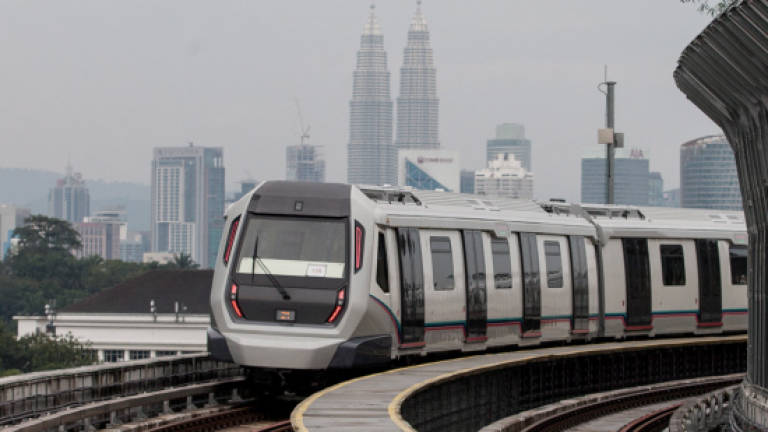2016: A 'rail-ly' good year for public transport

KUALA LUMPUR: Year 2016 ended with a promise of much better connectivity in the country, with rail providing fast and massive transportation.
One of the projects that are to transform the country is the high-speed rail to be developed between Malaysia and Singapore.
The two countries signed the agreement on the 350km line on Dec 13 that is to cut travel time between Singapore and the Klang Valley to 90 minutes.
Construction is due to start next year and the HSR project is expected to be fully operational in 2026.
Another landscape changer is the East Coast Rail Line, stretching over 620km from the Klang Valley. The project was announced this year in Budget 2017 and work on it will begin next year.
Listed among the high-impact projects under the 11th Malaysia Plan, it will be built in phases and connect Port Klang, Gombak, Bentong, Mentakab, Kuantan, Kemaman, Kerteh, Kuala Terengganu, Kota Bharu and Tumpat.
The first phase of the Mass Rapid Transit Sungai Buloh-Kajang Line with 12 stations from Sungai Buloh to Semantan started operating on Dec 16.
The second phase from Semantan to Kajang with 19 stations is scheduled to start operating by July next year.
Sungai-Buloh Kajang is the first MRT line. The second is the Sungai Buloh-Serdang-Putrajaya Line, with 37 stations, 11 of them underground.
Work on it has already started and it is expected to be fully completed in 2022.
Construction has also started on the Light Rail Transit Line 3, linking Bandar Utama and Klang, with 25 stations, and is scheduled to be completed in 2020.
In the Malaysian capital, the LRT Ampang Line was extended with 15 new stations which opened in March.
Also in 2016, the Klang Valley Double Track Project was started, involving the rehabilitation of 42km of track between Rawang and Salak Selatan and between Sentul and Simpang Batu.
In Sabah and Sarawak, the biggest project by far is the Pan Borneo Highway, running over 2,239km across the two states.
Construction began in April last year in Sarawak and last April in Sabah.
The government, meanwhile, announced proposed ammendments to the Land Public Transport Act 2010 and the Commercial Vehicles Licensing Board Act 1987 for the implementation of the Taxi Industry Transformation Programme.
The programme is to resolve the conflict between taxi drivers and ride e-hailing services such as Uber.
To ease the burden of taxi drivers, the government allocated RM60 million to grant each of them RM5,000 to buy new vehicles and obtain individual taxi permits.
Another important development is the setting up of the Malaysian Aviation Commission on March 1 as an independent entity to regulate economic and commercial matters related to civil aviation in the country.
The commission cancelled the Air Service Licence while the Department of Civil Aviation cancelled the Air Operator's Certificate of the first local syariah-compliant airline, the Rayani Air, due to its weak financial position, among others. — Bernama